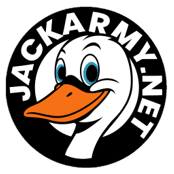If Brian Katzen was a footballer he’d be more of a Roy Keane than a David Beckham. When your team is three-nil down with 10 minutes to go, he’s the midfield battler who is still gunning for a win.
The South African is a key figure in the rebirth of New Zealand’s only fully professional soccer team, the Knights, formerly known as the Kingz. This winter the Knights will begin their campaign in the new Hyundai A-League – a trans-Tasman competition featuring eight professional franchises, seven of them Australian.
But as the Kingz unspectacularly crumbled in the 2003/04 season, winning only four of their 24 games and finishing eight points adrift at the bottom of the league, there were serious doubts about the club’s ability to survive. Its finances were a mess, Australia was revamping its football league and a New Zealand team would have to fight for its place.
Enter Katzen. The former accountant with multinational firm Grant Thornton was already a minority shareholder and had a perfect CV for the job of club saviour.
These days Katzen is a multi-millionaire. His company, Octagon Holdings, in which he jointly owns a majority share with business partner Jeff Crevoiserat, owns 50 companies, employs 800 people and generates revenue of around $US300 million ($NZ418m).
Back in 1996 though, he would have been relieved to know his business plans would turn out so well. That year he and Crevoiserat set up an investment business in Los Angeles and one of their first jobs was to manage the shut-down of a New Jersey company called Octagon Process, which specialised in de-icing products for aircraft.
But instead of shutting it down, Katzen and Crevoiserat decided that the business could be saved. “So for the next three years we just rolled up our sleeves and worked 24 hours a day, seven days a week, taking no salary. We were probably in debt millions, but we just kept working and working.”
They revamped the product range, brought in new bankers, grew the customer base and turned the company around. With that success, banks began referring other deals to the pair and they became specialists in corporate rescue. It’s a niche area – as Katzen says, “the deals we do are more risky than normal” – and there is less competition from big finance houses.
Octagon’s portfolio is diverse, from Finnish electronics firm Benefon to Californian bull-bar maker Manik Motors. It also owns a majority stake in Welsh football club Swansea City – Katzen’s first experience with the soccer business.
Octagon bought into Swansea City in January 2002 with the club teetering on the brink of oblivion – an exit from Division 3. It wasn’t a quick turnaround – the following season the Swans’ league survival was not ensured until their final game. But the club is now third in the revamped league and on a much stronger footing.
Katzen is keen to make that experience count for the Knights. “We are trying to run it as a business – most teams are run like a hobby. In the UK not many clubs are making a profit – and we (Swansea City) are one of them.
“Without a successful team you are not going to have a successful club. The key thing is winning – that’s what we’re striving for here.”
Part of the Katzen formula is having the right managers on the ground, and his right-hand man at the Knights is chairman Anthony Lee, a New Zealander who built British education company Student Support Centre UK into a business with 500 employees and turnover of E20 million ($NZ53m). Having returned to New Zealand, he has increased his involvement in football, becoming a 20% shareholder in the Knights through his company Total Football Ltd.
“You couldn’t find a better person to partner with than Anthony,” Katzen says. “He knows the players intimately.
“We’re kind of similar in that we don’t like to fail at anything.”
Financially, as well as operationally, there is a great deal to be done. The company has already spent $A1 million ($NZ1.09m) on its A-League entry fee, and further heavy spending will be required during the year. Football Australia chief executive John O’Neill expects clubs “will spend and generate around $A5m a year”, up to $A1.5m of which will be on player salaries.
Katzen has targets for the club – “we have set projections for the next five years so people know what’s expected of them” – but there is nothing firm for year one.
“Our overall goal is to build a team that can challenge for the title every year.”
This article first appeared on JACKARMY.net.

